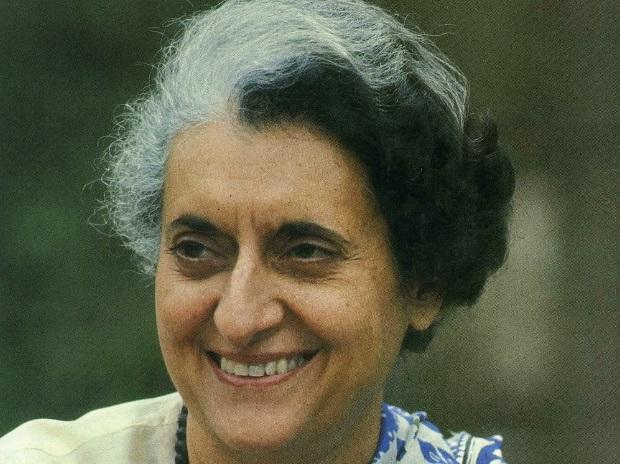Indira Gandhi became the first woman prime minister of India during a time when the matters of international relationships were not as smooth as in today’s world. It was just a few years after the British had left India putting an end to colonialism and India had yet to establish itself as a sovereign country on the international ground.
It was one of the most challenging aspects of Indira Gandhi’s times to establish international relationships. The foreign policies of India projected during Indira Gandhi’s administration are regarded vitally even today. Among the innumerable contributions of Indira Gandhi, her role in establishing critical international relationships in India is the most notable. This Iron Lady of India took up the gauntlet of uplifting India’s global image globally as an independent country that has been operating as a prized British colony since 1947.
Before we move on to throw light on how Indira Gandhi worked hard to solidify international relationships, it is imperative to have a little understanding of the contemporary global situation when she became the first woman prime minister of India. There were still prevalent traces of the rebellious zeal that had found expression during the freedom struggle of India against colonial rule across the world. Not only India but several other countries that were colonized revolted against the rule in pursuit of sovereignty and independence. The loss of India as one of its colonies was a decisive blow for Britain. India supported several other African countries striving hard to gain independence from Britain. This formed the fulcrum of the policy of non-alignment. Predecessors of Indira Gandhi, namely Nehru and Shastri, had also followed this policy, and Indira Gandhi carried forward the legacy.
Relationship of India with the United States
Indira Gandhi is still considered an indomitable and revered figure in the history of international relations for India. She helped establish the strong ground of Indo-US relationships. In 1966, Indira Gandhi visited the United States upon invitation from the then US President B. Johnson. Indira Gandhi established diplomatically strong relationships with the United States to facilitate food and foreign exchange. This was a crucial step because just the year before in 1965, the US had cut down all trade relations with India due to the Indo-Pakistan war. She signed the peace treaty with the United States of America during her visit, laying the foundation for a stronger future relationship between the two countries.
Indian Relationship with the Soviet Union
India has unique relations with Russia. But did you know that it was Indira Gandhi, the first woman prime minister of India, who laid the foundations for the same? When Indira Gandhi visited Moscow, the capital city of the Soviet Union, in 1966, Russian leaders cooperated in establishing a stronger relationship with India. That led to a mutual understanding, which was unfortunately later violated when Russia started supplying arms to Pakistan in 1976. Later on, when Pakistan adopted a pro-China attitude, Russia chose to cut ties with Pakistan, and resultantly since then, Russian Indian ties have been more vital than ever. During the government of Indira Gandhi, the Indo-Soviet Peace Treaty of 1971 was signed to promote friendship and cooperation between both countries.
Indira Gandhi is perhaps the most well-known leader globally because of her role in helping Bangladesh emerge as an individual nation. One of the most highlighted political contributions of Indira Gandhi is the active role she played during the liberation war of Bangladesh in 1971. India extended solemn help to the people of Bangladesh by setting up the India-Bangladesh Mukti Bahini. Mujibur Rehman, the leading political figure of independent Bangladesh, visited India several times and signed a treaty to promote democracy, socialism, and bilateral trade. To date, India and Bangladesh are close neighbors with very strong social, political, and economic relationships.
Indian Relationship with Pakistan
India and Pakistan were forever the same until the British tore the country apart. In 1971, the Indo-Pakistan war jolted the relationship further between the countries. The bitter war led to the loss of life and property in both countries. In 1972, India signed the Simla Agreement with Pakistan and established mutually drawn-out terms of peace post-war. However, peace could not be sustained for long. Soon in the year 1975, Pakistan started turning hostile to India on the issue of establishing Azad Kashmir. Indira Gandhi played a significant role during this time in leading from the front. When Pakistan put forth claims to Kashmir raising the issue of POK, Indira Gandhi ably, diplomatically, and successfully handled the situation.
The time of Indira Gandhi as the first woman prime minister of India is considered one of the most significant phases in Indian politics. She adorned India’s administrative helm during a time when the world was witnessing unprecedented international politics. She tackled the global political scenario with diplomacy, just as a seasoned and skilled political leader should.
Indira Gandhi was one of a kind. Never before had India seen a prime minister lead fearlessly the country the way she did. And above all, she is a constant and undeniable reminder of what a woman can achieve and how far she can succeed if she is given equal opportunities in this unequal world.



